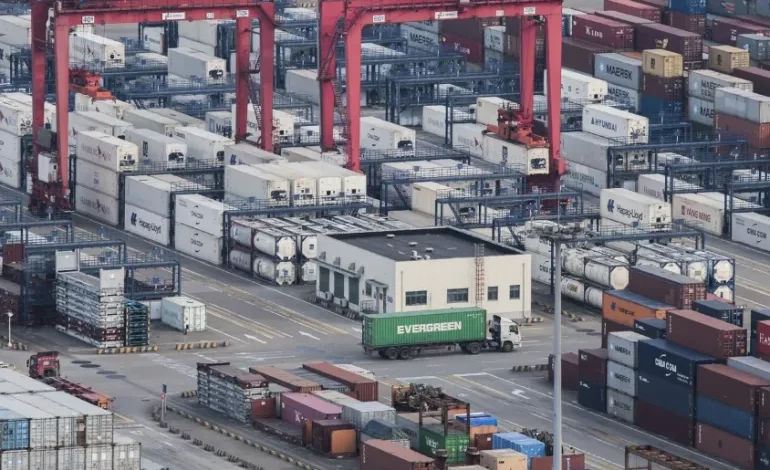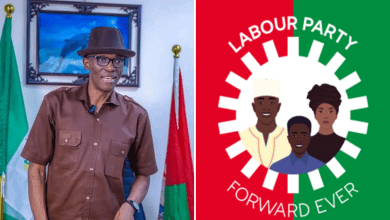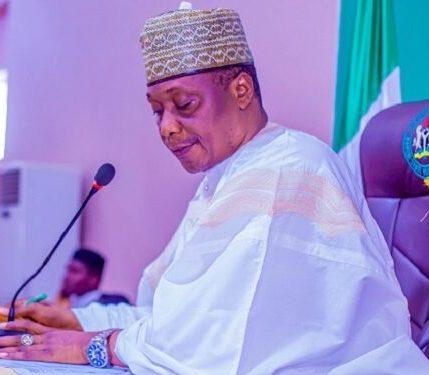
The Nigerian Association of Chambers of Commerce, Industry, Mines, and Agriculture (NACCIMA) and the Organised Private Sector of Nigeria (OPSN) have raised serious concerns over Nigeria’s growing public sector deficit, warning that it poses the biggest threat to the federal government’s ambition of building a $1 trillion economy by 2030.
In a strongly worded statement, NACCIMA President and OPSN Chairman, Dele Kelvin Oye, Esq., urged the federal government to adopt a more disciplined and transparent public financial management strategy, placing greater emphasis on capital spending, expanding the tax base, and eliminating fiscal leakages.
“While structural reforms are essential, we must confront a hard truth: persistent public sector deficits and continuous borrowing much of it to fund recurrent expenditure are crowding out private investment and driving inflation,” Oye stated.
Call for Urgent Fiscal Reforms
Oye outlined a four-point framework for restoring macroeconomic stability and rebuilding investor confidence:
- Prioritising capital over recurrent expenditure
- Expanding the tax base rather than increasing tax rates
- Plugging government spending leakages
- Accelerating the sale or concession of underperforming public assets
He noted that these steps are critical not only for macroeconomic recovery but for unlocking private sector-led growth and innovation.
Commending Transparency, Sound Policy Dialogue
Oye commended the federal government, particularly the Minister of Finance and Coordinating Minister of the Economy, Wale Edun, and the Central Bank Governor, Olayemi Cardoso, for their openness in acknowledging Nigeria’s current economic realities during the recent IMF/World Bank Spring Meetings.
He also praised their engagement with development partners on job creation and digital infrastructure, calling the approach “timely and commendable.”
“We recognise the government’s commitment to achieving single-digit inflation, creating jobs, and transitioning to a $1 trillion economy by 2030,” Oye added.
Mounting Poverty, Stifling Credit Conditions
Citing the World Bank’s recently released Africa Pulse Report, Oye warned that poverty remains a major red flag, with projections suggesting that 56% of Nigerians could be living below the poverty line by 2027.
He also criticised the Central Bank’s tight monetary stance, noting that lending rates hovering between 30% and 40% are choking small businesses, industries, and agricultural production.
“While high interest rates aim to control inflation, they are simultaneously strangling the productive sector, curbing entrepreneurship and job creation,” he said.
Oye called for targeted intervention funds and concessional credit windows for Micro, Small and Medium Enterprises (MSMEs), agriculture, and strategic industries to stimulate growth and ensure food security.
Global Shifts and Nigeria’s Strategic Positioning
On foreign policy, Oye stressed that Nigeria must reassess its global economic strategy, given the decline in U.S. dollar dominance, the growing influence of alternative trade systems, and the rise of new economic alliances.
“We must deepen our trade relations with emerging blocs such as BRICS and strategically position Nigeria as an attractive destination for investment,” he said.
According to him, this pivot could diversify Nigeria’s economy, stimulate industrial growth, and create more jobs, thereby reducing the poverty rate and strengthening the nation’s global relevance.
The Urgency for Inclusive Interventions
While acknowledging the bold reforms already underway, Oye concluded with a sobering warning: the short-term pains of reform rising poverty, unemployment, and insecurity require swift, inclusive responses.
“Nigerians cannot continue to bear the brunt of reforms without visible improvements in livelihoods. Aspirations are being crushed, and the government must act decisively to restore hope,” he said.




